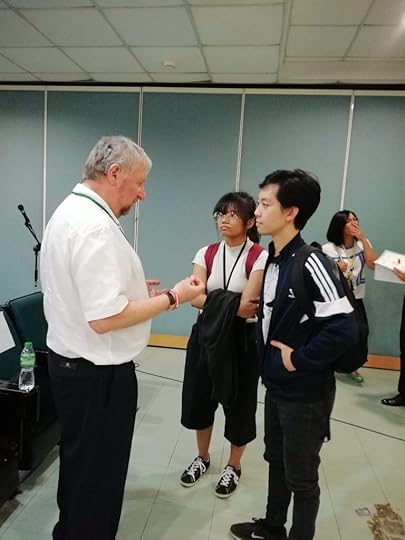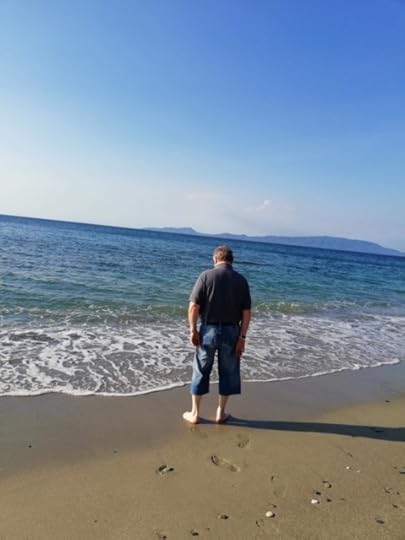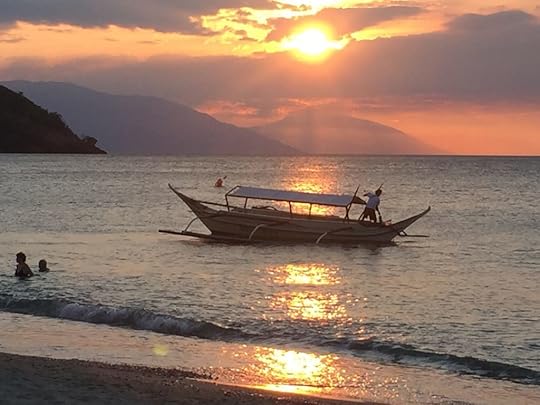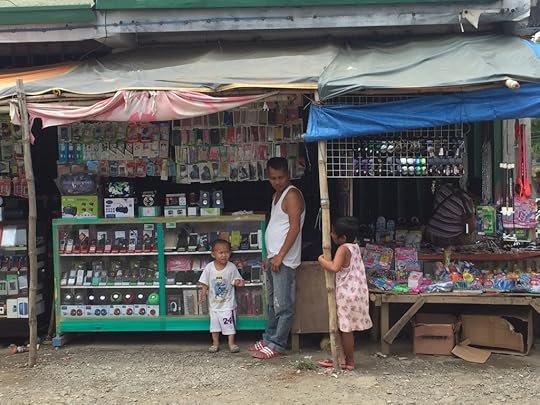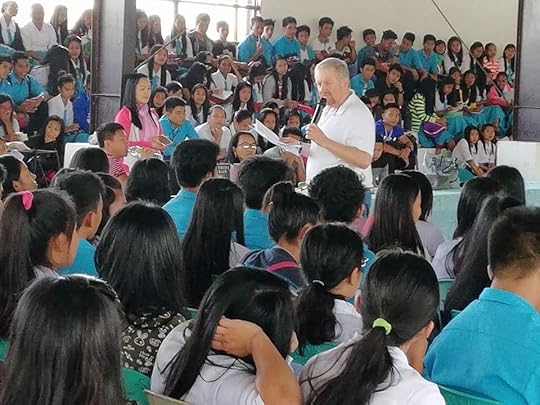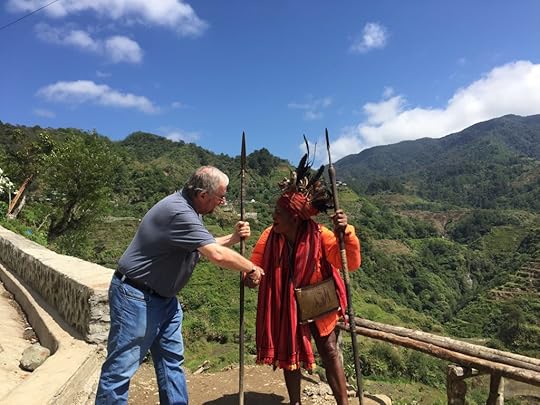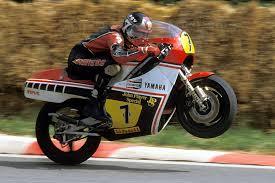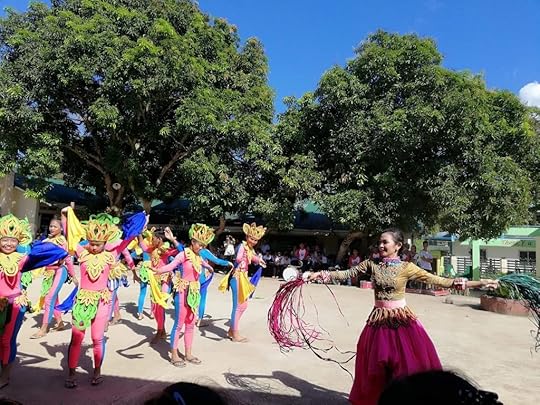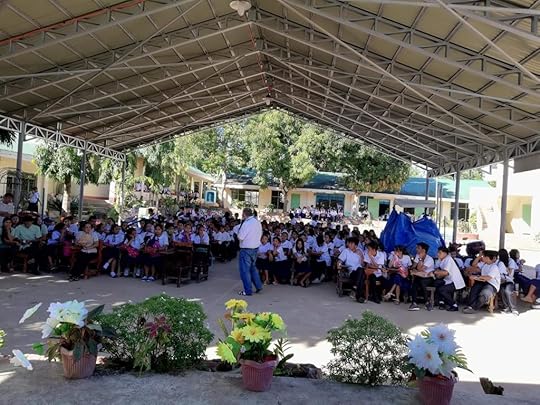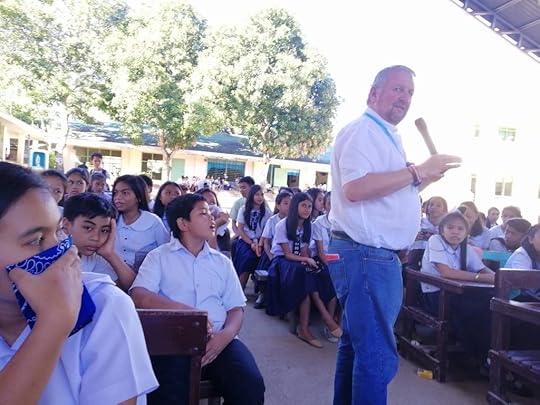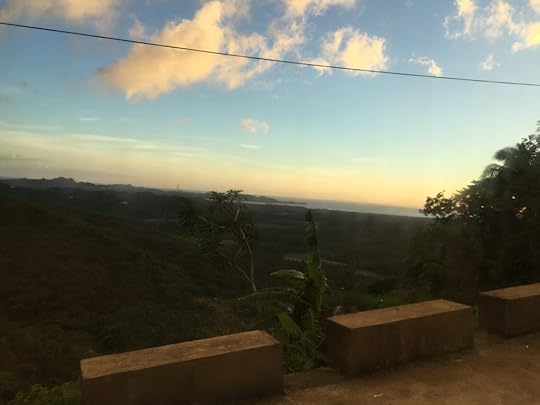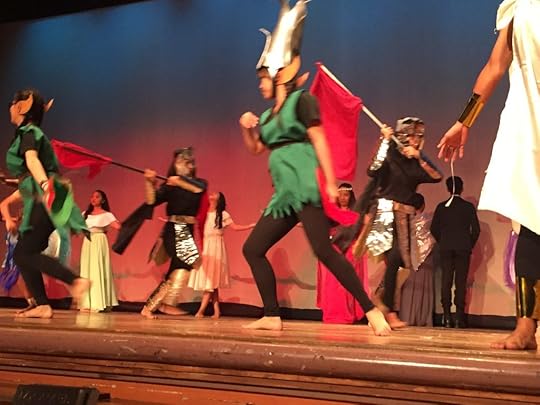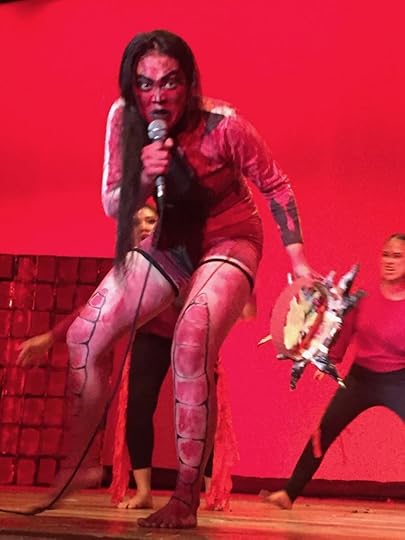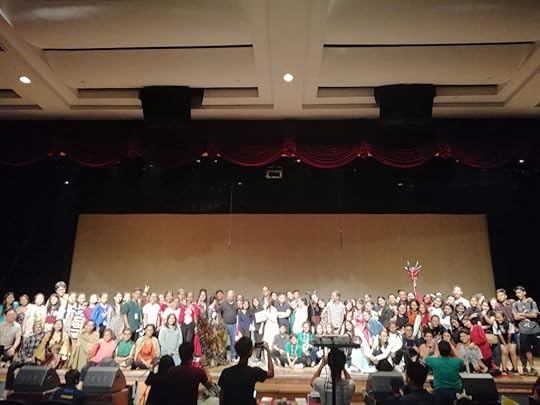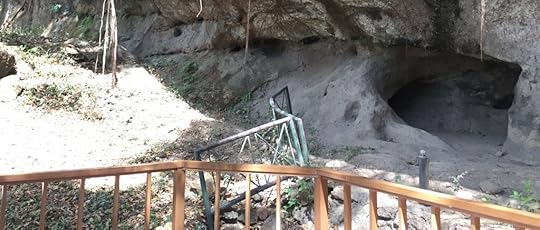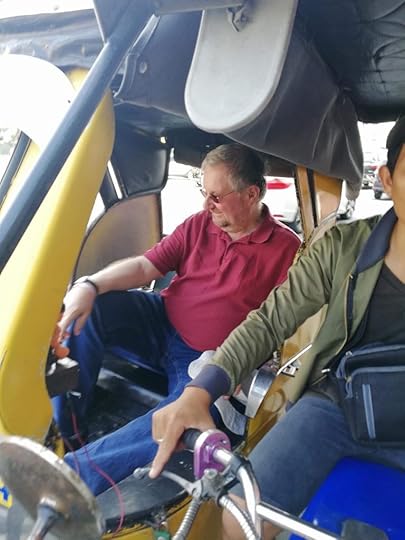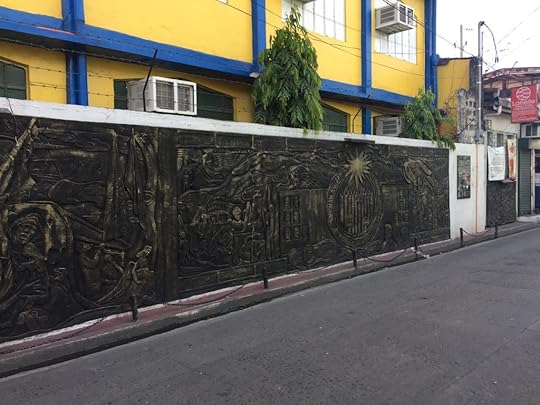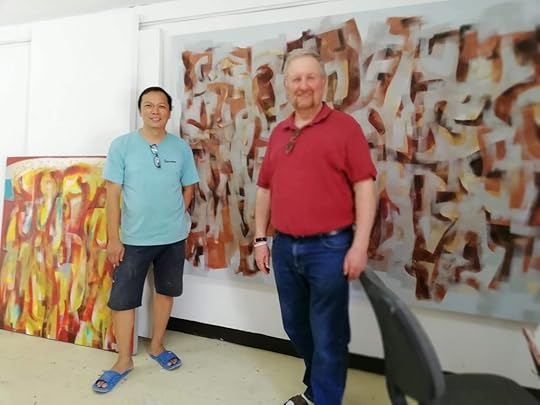Michael Forester's Blog
June 13, 2020
Where Foxgloves Soar As Trees

I am walking at Clay Hill Heath today. The car park is just off the A337 from Brockenhurst to Lyndhurst but not signposted from the road, so less susceptible to impulse visitors. That, in turn, gives the area an advantage of seclusion that it might not otherwise enjoy. I step through a small gate into Park Ground Inclosure, onto a lesser path, rough, with long grass invading well into foot-worn territory.
The air is heavy with the magic of the Forest and I stop for a moment to drink down the silence. The early morning sun is climbing the trees, flinging an iridescent golden light through interweaving branches, themselves heavy with midsummer leaves. Somewhere, far away, the birds are calling; but not here. Here is sacred space. Here is solitude and silence, where the air clear enough to see what lies within the light.
As my eyes fall to the ferns, the moss, the undulating path beneath my feet, I realise, that, of late, I have walked too much on managed paths.
That is fine sometimes. But by choosing an easy walk on maintained paths, you distance yourself from the energy of the Forest. Here, by contrast, is harder walking, more demanding, in a place where you are not distracted by the sound of your own footsteps on gravel, while you make a journey others have laid out for you. By choosing a route fewer walk and silencing your own noise, you hear more clearly what the Forest wants to say to you.
If you walk on managed paths, you will feel the Forest’s breath upon your face. But to feel the beat of its heart, you must take the rougher paths. Risk abandoning all known paths and step onto the Forest floor itself, and you begin to hear the whispers in its blood1. Gradually, your own respiration matches the pace of the Forest’s breathing. It becomes hard to tell where you end and the Forest begins, hard to distinguish which is your soul and which is the Forest’s, until the distinction becomes irrelevant.

I stoop to capture a ground beetle’s view of a foxglove. To the beetle, the foxglove towers high, waving in the wind and is impossibly beyond scaling. But when beetles learn to step out of themselves they become bigger than they knew was possible. Foxgloves become small. Treetops can be reached if beetles are willing to believe it possible. And should they so be willing, that which was unknown comes into view – if they want it to, of course, only if they want it to.
Small, big; weak, powerful; all is relative to the self – until, that is, we choose to step out of ourselves; until, we are ready to take a risk and become the Forest. When we understand we are not apart, we rise beyond the foxgloves and soar beyond the trees. We understand that the ground beetles can become kestrels. I am the ground beetle, gazing up at the soaring foxgloves, until I grow a little higher. Then, I look up at the trees, waving impossibly high, until I learn that if I want to, I can be a kestrel, soaring above the boughs that seem so far beyond my reach; when I am ready to grow wings, that is, only when I am ready. As I tread the rougher paths in search of the Forest’s heartbeat, listening for the whisper in her blood, the only question that remains, is, ‘Am I ready for wings?’
I see a gate and feel a little disappointment. I knew it was coming – the map told me so. I’m going to cross Beechen Lane, where early morning dog walkers and cyclists are passing up and down. I don’t resent them. I don’t mind that I will need to gift a smile or exchange a word. But they want the manicured paths and I want the Forest floor. Their journey is not my journey. Our exchange will not take long.
Crossing the path and entering Pondhead Inclosure, I reflect on the fact that this has not always been my way. There have been many instances on my journey, when I have been tempted onto prepared paths. It is a method of travel we are encouraged to employ for getting through life as quickly as possible, for attaining the goals others have convinced us are desirable. But consistently, I have found little joy in walking the ways that others have laid out before me. I am reluctant to espouse the idea of getting through life quickly. For, this is not how you connect with the energy. To do that, you must take the way that leads to source. You have to leave behind the well-trod ways of ease and conformity. You have to step out onto the unkempt Forest floor. You have been warned that danger lies in wait for those who step off the managed way; that you may trip and fall and there may be nobody there to save you. And yes, sometimes it will be so. But always the Forest is there and it is the Forest that lifts you up when you stumble. Always, it is the Forest that nurtures you. If you let fear dominate your journey and you keep to the managed routes, you will not see what the Forest is waiting to show you. For she is your home, your origin, and she plays the melodies to which your heart wants to dance. Only on the Forest floor will ground beetles learn to become kestrels.
I come to a fallen tree that blocks the path. And I understand now why this way is less favoured. It would be difficult to ride on horseback here and you certainly could not cycle this route. Most are dissuaded. Most turn back and walk the managed path. To pass the fallen tree you must step off the path, onto the Forest floor.
Eventually, I find myself back in the organised world. I looked down and see tarmac beneath my feet. By the side of the path, a plaque informs me that this is Pondhead Woodland, cared for by the award-winning Pondhead Conservation Trust. Their job is to manage the woodland, cutting back the Hazel coppice to ground level in order to promote regrowth and encourage the smaller wildlife. I take a moment to identify with the coppice that must cut back in order to regrow stronger. Silently, I thank volunteers who have put in the seven thousand hours of free labour, that enable me to walk on wildlife corridors.

I proceed through the silence until I arrive at a gate that proclaims ‘No entry. Hotel guests only.’ I am back in the land of mine and yours, barriers and turn-away-if-you can’t-pay segregation. I have no use for spas and formal dining rooms, gymnasia or fine wine. Such a price has long been well beyond my means. I retrace my steps and, in so doing, pass the stacked Hazelwood awaiting its journey to the kiln for transformation into charcoal. I am reminded that all must fulfil their purpose; all must, if you will, pay their way. But there are other ways of doing so than burning on barbecues to cremate fat-sodden burgers. Because here, near the stack, is a loveseat, fashioned out of the same coppice wood. I am heartened to be reminded that you can equally well pay your way by facilitating love.

The great Scots pines of last week’s journey are far away; those that will be used in the building of great edifices. Here, the wood is gentler, the trees smaller, though no less well-managed. The haven they create is hazy peace, where sunlight steals through shady bowers to rest on lazy pools, while the path grows narrower yet. Who can tell where it might lead? But there again, who would want to?

You are in the Forest with only the rabbits and foxes for guides. From choice, not compulsion you tread from rougher paths to Forest floor, where secrets are whispered on the wind and dryads illuminate your heart, like sunlight falling on silent pools. You are a ground beetle or a kestrel at choice, soaring above, dropping below. There is no segregation. The lines have blurred. The respiration is one. You are the Forest and she is you. And that will make all the difference2.
The post Where Foxgloves Soar As Trees appeared first on Michael Forester.
June 6, 2020
The Portuguese Fireplace

So this morning, once again, I take the road from Emery Down to Bolderwood and park at Milyford bridge. But this time I walk up to the Portuguese fireplace with the intention of following the path down to the New Forest reptiliary, before circling back through Wooson’s Hill Inclosure. A plaque used to stand next to the Portuguese Fireplace, explaining that it is all that remains of a hutted camp, occupied by a Portuguese army unit during the first World War, retained as a memorial to the men who lived here more than a hundred years ago, helping with wartime timber production. But the plaque has gone, perhaps removed by a souvenir hunter. Our gratitude, it seems, is even shorter-lived than our memory.
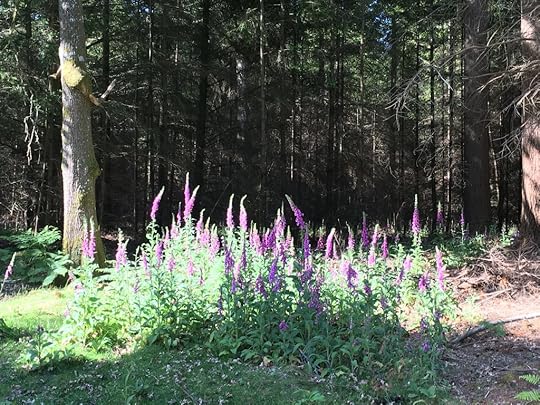
Entering Holidays Hill Inclosure, I encounter swathes of early foxgloves, before happening upon more felled trees. But the scene here is different from the devastated hillside that confronted me last week in Highland Water (and on this, see my blog post of 30th May 2020, ‘On Barren Hillsides’ at michaelforester.co.uk/blog). For what lie silently before me here, are great Scots pines, selected for individual harvesting, while about them, their brethren still stretch up forty metres, waving into a cloudless sky.
I find myself wondering how the Forest Manager has determined which trees will fall, designated for the building of future edifices, and which will be left soaring into the blue until their own time comes. Those that remain are more numerous than the felled, for the Forest Manager is selective in his choice of building materials and always most careful to ensure he does not damage the remaining forest. And so, I come to question, ‘What must it feel like to be a tree left standing, while others have been taken?’ Are they glad to see the end of those that lie below them? Do they regard themselves as, somehow, superior to their fallen brothers, as do so many of the competitive men and women that I have known over the years? I think not.
There is no arrogance in their sway. Those trees that still stand and reach upward, do not seem look down disdainfully upon those that lie silent below them. For their nature is only to reach to the light; their motive merely to sway in the wind, each preoccupied with an urgency to be the best they possibly can, yet ever conscious they that are part of the wider forest about them. That they have been left to grow while others have fallen, has left them with no sense of superiority. Perhaps they consider that the taken ones are further ahead on their journey and closer to fulfilling their purpose. Maybe they even consider their felled brethren to have been the greatest among them, revered for their glory, taken first.
But they will not mourn the passing of the taken. For, even if they do not know that the time has come for the felled ones to move on to their next stage of service, always they trust the Forest Manager and his purposes, greater than a single tree can know. Neither do they forget. Their awareness of those taken lives on in the memory of the forest’s root system. Those which remain, esteem their departed companions. They do not disdain them with discarded instant barbeques and purloined memorial plaques.

I think to move on, but there is yet more for me to learn here. As I pause in silence, I cannot help but identify with these felled giants. For I, too, have felt the axe laid to my roots at a time when I had expectations to grow yet higher. How much more understanding are these simple, powerful creatures than men, who take delight in the destruction of others they regard as competitors. Delight that melts away when they, themselves, finally learn that we, too, are a forest, and they merely trees who, in their turn, will be harvested.
Arriving at the reptiliary, I am confronted by a number of net-covered pools, containing sand lizards, green frogs and natterjack toads. I spot a frog or two, but the lizards and toads are elusive creatures. You can hear them, but they do not show themselves. Nor, I am relieved to note, do the lesser-spotted New Forest tourists. They prefer the nearby Bolderwood ornamental drive and the observation platform where, from a distance, you can easily spot the deer. I have to concede that they (the deer, not the tourists) are indisputably prettier than the toads at the reptiliary. Bolderwood also offers the sanctuary of a well-maintained car park, where you can expend sizeable sums upon the sweet delight of an ice cream cone or three.
I prefer to forgo such exquisite joys in favour of the solitude promised by Wooson’s Hill Inclosure. My own reptilian curiosity partially satisfied, I re-commence my walk, by way of a less manicured path. Under my feet the forest track is strewn with pinecones. The trees cannot help but fruit and pour their life into the next generation. Quite suddenly, perhaps thirty metres in front of me on the path, there appears a solitary Fallow deer – a young buck. I stand statue-still, so as not to frighten him away. But these creatures exercise great instinctive caution. He deems me a potential predator and in a moment is gone, leaving me with the lingering joy of sighting. For this I am more than happy to have forgone the unwelcome artificial sweeteners of ice cream cones at Bolderwood.
From the Inclosure, I emerge onto a sunlit path, which offers me an honour guard of young Silver Birch to my left and pines to my right. The road winds uphill yet again, (yes, right to the very end), through fox gloves and rhododendron groves, interweaving their brash colour with the forest’s mellow hues.
Finally, I find myself back at the Portuguese Fireplace. Approaching from this angle, I can see that some earlier visitors have chosen to embellish it with the less-than-delightful adornment of a burned-out instant barbeque. Later, I will regret my own neglect in failing to think to remove it.

I head for home on the Emery Down to Bolderwood road, but pull over to take a closer look at a sight I have wanted to examine since first noticing it, some days ago. Here, by the roadside, lies a long-dead and very large tree. I am no expert, but I think it was probably a great oak. Its visible roots, torn from the ground, attest to the fact that this was no planned harvesting. A large part of the tree has evidently been removed, presumably because it fell across the road. The rest of it has lain here for many years, perhaps since the great storm of 1987, which uprooted many enormous trees. I study it closely. It looks to me as though it had been diseased, making it susceptible a storm which many, apparently lesser, trees had survived.
As I gaze upon it in wonder, the full impact of today’s learning finally strikes me. How preferable it is to be felled whilst still reaching for the sky, than to cling on beyond your time, expiring slowly as you waste away inside.
The post The Portuguese Fireplace appeared first on Michael Forester.
May 30, 2020
On Barren Hillsides

Today, I have returned to Highland Water, where, in the car park, the Forestry Commission reminds me I must not barbecue, nor stay overnight. That’s okay. Neither is on my agenda today. I am here only to listen.
Descending on a steep, winding track through the coniferous wood, I centre myself into a reverential silence, ready for such voices as will come. Soon, I emerge into the sunlight and step down onto a gravelled road that traces a wide curve off into the trees. Once again, I am filled with wonder at the undiluted glory that lies all around me. It is so commonplace, so ubiquitous, so easy to ignore; and yet it contains all the energy of heaven, bellowing gloriously onto the Earth. From the lowest of the grasses and ferns, up to the greatest of the oaks; all harmonise the same song: the power of spirit strewn lavishly into the incarnation of which we are a part.
But these are managed woodlands and soon, I happen upon a hillside that has been felled to an unsightly, barren desolation. The sight is like grit in the eye. Instinctively, I turn away, finding it more comfortable to gaze on the joy of fruitfulness that lies all about this ugly gash. Then I stop, because, in the instant awareness that Spirit brings, I see the lesson that I am here to learn today.

I ask myself how many barren hillsides I see when I gaze back over my own life path; unsightly scars that I would prefer to forget, where lush, vibrant growth has been unexpectedly felled. So many times, I have sown seeds; watched them take root, spring up and reach towards the sky, until some have grown into great, high oaks that wave gloriously aloft in the world. Some of them have seduced me into thinking that this is it, my life’s work, my edifice, the legacy from which posterity will remember me – until, without warning, they have been unceremoniously felled and carted away. Then I have wandered among the silent, desolate stumps and I have cried out in my anguish, “Why? Why has this happened to me? And why now? Surely this is random. Surely this is purposeless. Do I not deserve better than all this devastation? This is failure. Why am I treated thus?”
Sometimes, I have withdrawn into near-hibernation, for the pain has been inexpressible. Harder yet, has been the deluge of silence, raining down from the heavens, leaving my anguished aphorisms unanswered. Unanswered, that is, until I have stopped nursing my resentment for long enough to remember that the woodland is under management. Because once you see that, the answers become so obvious as to make the question melt away.
The barren New Forest hillside I see before me this morning is no random accident of meaningless destruction. What I am looking upon is an intentional harvesting. That which has taken away has purpose. That which is left behind lies fallow, awaiting its time to bear growth once again.

I smile as I realise that I am standing, dictating this in front of a pile of logs marked and labelled for their future purpose. The logs don’t know where they are going. They know nothing of which future edifice of they will form a part. Those who planted them decades and lifetimes ago knew nothing of the building project for which they were destined. They felt no need to know. All they knew was their own part in the planting, the nurturing, the watching over of the young trees as they grew. All they knew was that, in due time, the Forest Manager would surely come to harvest the growth and carry it forward to the construction for which it is destined.
Furthermore, removal of these trees has not harmed the forest. All it has done is expose the hillside to the sunlight and the rain and the wind; the wind which blows where it chooses, such that you can hear it, but cannot tell from where it comes nor to where it goes. For such are all who are born of the Spirit.
That same wind is blowing now about me, rustling the leaves in an orchestrated symphony of creation, wafting the pollen, reinvigorating the ground with new life. Who am I to question how long it takes to seed, to overwinter, to reach the point where the nurtured growth roars out the old, old song into the concert of summer? The forests that I see, both without and within, have been managed across lifetimes in vision and strategy that reaches beyond my horizon of years. I turn away in awe, truth imbibed, lesson learned. The bare hillside behind me has not been discarded. It does not lie wasted and useless in the crooked undulations of the land. It simply waits fallow until the time of the next planting comes; the time of which only the Forest Manager knows.

[image error]
The post On Barren Hillsides appeared first on Michael Forester.
May 22, 2020
Go Noisily Among the Placid Places

Today, I park at Milyford Bridge and take the path into Holmhill Inclosure, where I have never walked before. The well-maintained, gravelled walkway first paces the meandering Highland Water, before crossing a little wooden bridge and continuing straight on, whilst the stream wanders off into the solitude of the deeper parts of the wood.
The forest is exploding with springtime energy. Lush, green ferns are throwing their fingers wide to hide the ground. The birds holler out their claims to exclusive ownership of their chosen branches, declaring their prowess, as if on Tinder, to vie for a host of favoured mates. All are hungry to breed, to make more of themselves.
As I walk, the silent connection descends upon me once again.
I have been exercised for many days now, and not just during lockdown, as to the question of what I should be doing with the years that remain to me. For I must open my heart in honesty and tell you that the words do not flow, now, as frequently and as lucidly as they did twenty years ago. Back then, it seemed, waterfalls of spirit would cascade down incessantly upon the foundation rocks below, almost as if I were powerless to prevent them. But in these latter days, the words of heaven have grown fewer and the silences longer. There are times, many times, when it seems to me that the power of what comes is not equal to what it has been. So it is in great gratitude that I have used these days of enforced leisure to return to source with the intention of rediscovering my purpose.
Now that the Forest is accessible once more, with that same gratitude, I can again walk among the trees in the cool of the day, when Spirit comes upon me most readily. “What is it I should do now?” my heart asks. “Give me a sign,” I implore, “a sign of what the next step should be.”
I had not expected the answer to come so rapidly or so clearly; not in a flash of light; not in a thunderclap, but in silence that wraps so closely about me. ‘Go placidly amongst the noise and the haste,’ I had been reading in the Desiderata, just a few days before. “But you are more prone,” comes a voice, “to going noisily amongst the placid places.” I acknowledge without argument that it so. My heart is noisy.
A little chastened, I follow the silence, listening only to the birds, feeling only the dryad energy, bowing only to the presence of Spirit. As the truth of the answer builds in my awareness, my eyes begin to brim at the realisation: I do not have to do anything. In fact, for Spirit to flower in me it is essential that I do nothing.
In the realisation, I turn, as Jennifer Wellwood puts it, to face my fears and discover again, the warrior who dwells within. What is the greatest of those fears? Just this: that I will never write well again.

For I must disclose to you that the best of the material I have published in the last few years, was written long ago. Further, the books that I have released have not sold as well as the early ones. As I travel deeper into my own forest, such words as are expressible do not have mass appeal. By and large, I observe, people want heart-warming stories about cute dogs and tales of fiery dragons. They do not see the metaphor that lies behind the words. Even less do they want to turn to face their own fears. And thus they fail to find the warrior who dwells within. As I have explored the less accessible parts of the inner forest, the words that come have held less appeal to the majority, who prefer well-prepared paths that pace the easy water courses.
Even as I write this, I ask myself the question, ‘Why should the reach and appeal of my words concern me?’ And I acknowledge the answer is not to my credit. I have built too much of my human identity in this lifetime upon the sinking sand of authorship. For upon such windswept dunes as these are the foundations of authorial edifices erected. You must give people the words they want to hear if you are to stay atop the mountain of shifting sand. You must tell them of the cute dogs and the fierce dragons, of eternal love affairs and dastardly criminals bested by powerful heroes. And you must also find superficially different ways to tell the same story over and over, in book after book, for it is the repetition that pleases and the monotony that reassures.
Yet here’s the problem, if it can be described as such: if your own soul prefers the unveiling of the covered, the illumination of the pathway forward, there are not many who will share that journey with you. So, I ask myself, is the time of books drawing to a close for me? I observe, now, many voices with many things to say. For those who prefer to hear the superficial, spirit is often drowned out in the cacophony.
Perhaps, therefore, for me, there will be no more books. I acknowledge that I will not think the books important when my course is run. Only the words will matter, the words that have lodged in hearts; only the journeys that have been illuminated.
I can tell you this, though: between now and then, there will be solitude. There will be unaccompanied walking and there will be silent meditation. For upon such rock as this, the waterfalls of Spirit will ever cascade. And such as comes from this source I will continue to speak out. But the deeper I travel into the forest, the fewer will be those who choose to walk beside me.

Thus I walk on, leaving the Inclosure at the far gate and turn right to climb the hill. As I walk, I remember my father telling me, many years ago, that as a small child he would read to me Christina Rossetti’s poem ‘Up-Hill.’ ‘Does the road wind up on all the way?” he would read. And I, with my eighteen-month old vocabulary, would answer with an emphatic “Yes!”
“Yes,’” he would continue, nodding vehemently in agreement, “right to the very end.”
As I look back down the hill I have just climbed, I acknowledge to my eighteen-month old self that it has indeed been so. The road has wound up hill all the way. Its twists and turns have always prevented me from seeing what is ahead. It has also risen to brow after brow, beyond which I cannot see. And all this, you understand, has been precisely as intended. So, once again, I remind myself to stop asking the question, “Where next?” For it is not mine to ask. I already know all I need to know: that I will continue to walk this winding path up the hill all the way right to the very end. Only when I reach that lofty crag will I be able to see clear across the valley of this incarnation and on into the next.

From the top of this particular hill, I return by another, wilder, way and find myself back at a less visible part of Highland Water – a place where fewer come. For a while I walk alongside the stream on an obscure path found only by the diligent and the guided. Here I observe many bridges over these placid waters, bridges laid down not by men, but by God. Once more my eyes turn to wells as I see the metaphor. It is too long since I walked in such beauty and revelation. It is too long since I have gone placidly amongst the placid places until, in the silence, once again the spirits walk by me.

For now, as I proceed in meditation upon this path, there are many who come to walk with me, but none of them incarnate: angels, dryads and others out of body are my fellow travellers here, where it is less easy to tread. I have said in the past that I number such amongst my closest friends. Those that have heard or read the words, have thought it no more than a quip, a clever line thrown out to garner admiration. But these are they that walk beside me now. These will always be my companions as I proceed deeper into the forest. What other friendship, except perhaps a dog, does one man need? Whatever calling, prominent or obscure, can matter more than the one God gives you?
The post Go Noisily Among the Placid Places appeared first on Michael Forester.
May 14, 2020
Common Meditation

On an empty Barton Common, the gorse spreads wide to welcome the sunshine and the silence is broken only by the birds singing arias to the arrival of spring. Bluebells still linger in these sunny corners; they will not outstay their welcome, though, and will soon yield to the gaudy interventions of the wild rhododendrons.

Now that the humans have receded into their chrysalises, the animals, first nations of these parts, reclaim the empty golf courses.
I prefer not to cast my eyes westward, to where the grand houses of the well-resourced cast severe gazes seaward, down over an unkempt wild . Though I can well understand the inclination of the monied to hole up in such refuges, when I look upon them I whisper to myself “Not my journey“ and turn away.

Horse riders approach. I turn and walk away, prizing the silence above the very human inclination to fill the emptiness with friendly words. But they are taking my path. I stand aside to let them pass and follow at a distance, fixing my meditation on horseshoes and waving tails. Herein lie metaphors unnumbered.
Quite suddenly, the common is filled with walkers, accompanied by cockerpoos and labradoodles – designer mongrels of choice of those who need to to smother their insecurity with statements of opulence, even in their choice of canine companions. They stop at safe social distances to exchange pleasantries. I have no innate objection but I am here for the silence, so I draw away and make for the sea.
But they are determined ramblers and soon catch me up. As I stand aside to let them pass, my thoughts are drawn to the perpetual hunger I see expressed about me to establish status, superiority, the reassurance of self-worth by those who feel so little valued. I have long since learned I am not here for the peacock displays in which I so readily participated in the years now flown, a lifetime ago. Now I walk a different path, having realised that my calling is to illuminate journeys. For, in the sunlight of spirit, eyes open and hearts become aware of their true, inestimable worth.
As I reach the seafront, I am confronted by too many other walkers, seizing the opportunity of sunshine to salve the monotony of self isolation. I will walk a little further, but soon will turn back to the relative emptiness of Barton Common.

And yes, for now, I walk alone. For Matt, my inseparable companion of fifteen years, who nosed about these parts in unbridled of joy, passed from my sight last year (though I am told by those who have the eyes to see, that he still visits quite regularly, but now with diminishing frequency). For me, he does so only by drawing me to revisit the memories of unleashed walks, where his vision rises before me to draw smiles and tears from me in equal measure.

Only now have I been able to bring myself to write or speak of him. Perhaps, in time, there will be another companion to fill this empty space. Whether that will be soon or somewhere out in the distance, I cannot yet say. And who knows? It might even be a cockerpoo that comes, to teach me to love more and judge less.
Until then, I shall continue to seek out the commons and the copses, to walk in the silent spaces in which I am never lonely and, in the constant sunlight of Spirit, never alone.
The post Common Meditation appeared first on Michael Forester.
April 24, 2020
On Bluebirds and White Cliffs
We are over the first shock, and if frustrated, we are at least settled into a routine. So now we begin to peer into the crystal ball, wondering where this all leads. Not surprisingly, we are asking the question, ‘What happens afterwards?’
I suspect that here in the UK, the PM’s own pandemic experience will prove to influence fundamentally his thinking on how to move the country forward. Whether that matters, depends on the strength of a lone leader’s voice. Cabinet hawks have not been similarly affected; Boris Johnson has a reputation for putting effective people in place then letting them get on with it. Perhaps, in the end, his own opinions will not count for so much.
Much else will depend on how long the aftershocks last. At present most eyes are upon the hope of an end to lockdown, as if it were to be as abrupt as the beginning of the shuttering. A great deal of hope and self-motivation is driven by that. When it proves not to be, we are likely to see both widespread emotional deflation and the slow emergence of a two-tier, or multi-tier world: those full released, those partly released, those (the frailest?) for whom lockdown becomes a long-term expectation.
And then there will come the voices that call for economic reason – ‘We’re letting the young die because the ventilators are filled with the old; why extend the life of an old person by a year or two if it means condemning their grandchildren to ten years of poverty? It’s sad, but let those who are going to die, die. The rest of us have families to feed (the unspoken translation of some of which is, “I want my holiday, I want my new car, I want my restaurants back, I have a fortune to make and this is holding me up.”)”
Some element of lingering gratitude to the NHS will remain, possibly rewarded by a significant allocation of resources – but how great can that be in the biggest economic contraction for centuries? Think, not the Great Depression of 1929-32, but of 1347-1351: the Black Death.
More likely, we will institute an annual NHS day, erect monuments, call scout troupes to church. For at the going down of the sun, we will salve our consciences by remembering them.
Stock markets have at least the same distance to fall again as they have fallen so far – the present bear market rally is predicated on nothing more than hope and denial of inconvenient fact (think climate change denial, think holocaust denial). The housing market will fall materially (think 1989-1992, perhaps more) – all those partially-saved deposits now spent on living expenses; all those jobs lost because the banks have been sclerotic in approving government-guaranteed business loans (20% approval rate so far); all those mortgage lenders who will require bigger and bigger deposits as values, provided by surveyors with one eye on their professional indemnity premiums, drop like dead birds in mid flight. Fear is the greatest motivator.
As to safe havens? Some government debt will be repaid, some not. Who remembers the 1929 5% War Stock, converted in 1932 to undated 3.5% War Loan, finally paid, inflation-decimated, in 2015?
You can dash for gold- many are – but you can’t eat it.
Shortages may have barely begun. Reports on Bloomberg this morning refer to the destruction of food in the USA because processing workers are sick or have died. It has yet to impact the cities. Normal UK food stocks in the supply chain are said to be nine days. And, soon, the picking season begins with, we are told, a shortage of labourers. As for non food stuffs, as yet little-publicised reports say only a small proportion of ordered PPE is actually being delivered despite having been paid for. We all heaved a sigh of relief when a flight arrives from Turkey with three days’ supply.
Recovery will come, but slowly. Think 1945-1960.
Children will be born into, and grow up in, a post-Covid world. They will play, not in blitz-bombed ruins, but graffiti-sprayed shopping centres with broken shutters rattling in the wind. They, and we, will wonder how we lived the way we did; how we permitted ourselves to be deluded by worthless trinkets (think the purchase of Manhattan Island from native North Americans for strings of beads).
We will see polarisation. Some will grow more socially serious, more caring, in a world in which state support can no longer be taken for granted, in which we must therefore care with more genuine concern for one another. Charity registration will increase. The synagogues, the mosques, the temples and the churches will be better attended.
Others will live on their wits; exploit. Think, ration-facilitated black markets; think, false claims for ineffective remedies spun across the world at the speed of electrons, through the portals of social media gullibility. Think of the spice trade, started because spices were believed to offer protection against the plague. Think of the value of the ineptly-named Gilead Sciences, soaring then plummeting on hopes and dashed hopes of an antidote. Think about a president, so myopically motivated by his desperation for re-election, that he rouses the rabble to stampede out of state-imposed lockdowns, while calling on the rest of us to sit in the sunshine and mainline disinfectant to kill the virus.
We who have grown used to Government-provided solutions to our problems will clamour for inherently conflicting outcomes: save the NHS, save the economy, give me back my job, give us a vaccine and give to us it now, wave a wand. Some how, anyhow, make it how it used to be.
We will not be quick in accepting that it is not going to be how it used to be. We will grieve for a lost world, but will not quickly grasp that grieving is a five stage process. And we will pass through all five steps before arriving at acceptance that the old world has gone.
And what will they – the politicians – do? They will rely on the best advice from lauded advisors with an unenviable task and an unimpressive track record in crystal ball gazing. They will meet in Cobras and corridors, lip-serving, social-serving and self-serving as they do, with one eye on their helplessness, another on the need for re-election and their third on opportunity to make covert gain.
Overtly, we will see some, or all, of the following: higher taxes including the long-shunned wealth taxes; more committees; more bureaucrats; more surveillance cameras; more, and more subtle, curtailment of freedom; rationing (if the supermarkets can do it, the state can do it); five year plans; nationalisation; martial law.
What we will not see, is the uncertainty and despair they take home nightly to their wives and husbands, their uneasy co-conspirators in the suppression of mass panic, who watch their loved ones’ dematerialising confidence waft away with the sunset. They will stutter and flounder. And they will stake the family silver on a plethora of book-learned arrogance, lacing their statutory instruments with the hemlock of well-intentioned ignorance.
In short, they will do what they can, whilst unconvincingly reassuring the rest of us and giving us hope, for that is why we vote for them. That is what we pay them for – to be certain when we cannot be certain, to tell us there will eventually be bluebirds over the white cliffs of Dover and that we will meet again some post-Covid day, to celebrate once more, the inspirational Captain Tom- for a season.
It does end. History repeatedly tells us so. But history offers us no certainty as to when, for each challenge, each opportunity to rethink our direction, looks a little different from the last. Many will come to the end their life journey sooner than they had anticipated. Of those who remain, some will re-entrench their cynicism. Others will dig deeper, try harder. A few will reach further, squeezing the comfort zones until the alveoli convulse.
But will many take heed of Blaise Pascual’s sometimes quoted phrase: “All of humanity’s problems stem from man’s inability to sit quietly in a room alone?” No, I doubt that. In any given lifetime, only a few ever learn the meaning of that one.
The post On Bluebirds and White Cliffs appeared first on Michael Forester.
March 16, 2018
An Indie Author on Book Tour in Asia: Post 9: Stranger in Paradise
De La Salle University is an oasis of calm in a city of movement. We allow two hours to cross this part of town from Bonifacio where I am staying, but it takes only thirty-five minutes. Such is the unpredictability of traffic in Manila. The lecture hall seats about two hundred, but seven minutes before we are due to start, only twelve seats are filled. I am assured the audience will arrive. I assume we are on Filipino Local Time again. But no, students have classes some distance away. There are fifteen thousand students at De La Salle. They will get here when they get here – not all of them, of course! We start on time to the usual prayer and national anthem, after which young people continue to file in –and will do so for the next forty minutes. There is an air of academic formality about the room. Teared seats, AV system, fixed placed microphones, all contribute to the message that this is a place of formal learning. I am about to shatter the formality. Once introduced, I unwind the cable to free the microphone from its cradle and launch into the Land of Risk, pacing the room as I speak, often at volume.
The audience is restrained. I get the sense that whilst these guys know what metaphor is, they don’t ‘get’ metaphor, at least not emotionally. Eye contact is certainly made, but there is a reluctance to connect emotionally. They have been taught, as I once was, to evaluate critically, to maintain emotional distance. It’s a methodology that applies well to gaining an intellectual understanding of a subject, but it is not an approach that engages the whole personality – not one that sets the spirit free and lets the heart soar to become the very most we are capable of being. If we do not engage with intellect, emotion and spirit, we grow lopsided. We can become intellectual giants, yet remain spiritual pigmies, our emotional intelligence stunted.
Yet by the end, it is clear that something has resonated. Questions are deep and incisive, with no reluctance to step forward to engage. This is a hungry audience. And amongst them are young people whose hearts are set on walking this path. One young man in particular asks repeated questions, even approaching me afterwards to explore our respective journeys in more depth. Later, in the University foyer, he will approach again, accompanied by a young lady. There appears to be an attachment. She has a different question. She has to make presentations but repeatedly freezes when doing so. So there in the foyer, whilst awaiting the arrival of the taxi, we throw down the NLP (Neuro-Linguistic Programming) Circle of Excellence and practice accessing resources she already has. She can engender in herself the same comfort she feels in reading, when making presentations. Learning how to apply this single tool from NLP was a pivotal point in my life. I have taught it and seen it employed with dramatic success time after time. This young lady remains unconvinced of the power of what she has learned. If she utilises it when next presenting, she will be in for a pleasant surprise. Returning to Bonifacio takes more than two hours. Such is the unpredictability of the Manila traffic.
So now my last presentation, for this visit, is done. I have lost count of the number of events I have attended, the number of people I have connected with, the number of miles I have flown and travelled by bus. But numbers are only numbers. All they can do is calibrate. That calibration can offer a false sense of satisfaction, leading only to ego-building. ‘I have sold x number of books. I have spoken to x number of people. I have made x number of foreign tours. And that must mean…’ That must mean what? That I am a success? Success is a hollow nominalisation. That I am esteemed? Esteem evaporates in a blink. Let x remain the unknown quantity of algebra. I am not here for enumeration and ego-building. I am here to shed light, such light as I have, to further journeys of others. As the quote on the wall of the teachers room at UMAK said, ‘Teachers are like candles. They are consumed lighting the way of others.’ In my turn, my journey has been lit by others, and to these I shall always remain more grateful than I can express. I will be a teacher for those who would learn of the journey from the land of Comfort Zone where we sink into indolence, to the Land of Risk, where we become what were always meant to be, by discovering the divine spirit that lives in each of us. The only number, the only calibration, that matters is how many days I have left in which to do it before I, too, return to my real home. And I am not speaking of the UK.
Tamaraw Beach Resort
But it has been almost four weeks. My body is tired. The lovely people from the University Circle of Professional Educators, who have organised my visit here, have arranged two days’ recuperation at the beach. Tomorrow we will head off to the Tameraw Beach Resort at Puerto Galera on Mindoro Island. There’s just one catch: I have to be up at 4.00 am for the bus!
That bus deposits us at the port for a one-hour sea crossing to Mindoro. As we file out of the terminal on the waterside, I assume we are making for the large sea cat docked just up ahead. But, no, we veer off to something rather smaller. In fact, if you were feeling uncharitable, you mightit reminiscent of a canoe, though covered, motorised and seating fifty. I seem to be the only westerner on board. This might be a good sign. But then again, it might not. The gangplank is hauled aboard, itself an intriguing omen, and we depart. An hour later, the same gangplank is lowered and we descend direct onto the beach.
So this is what paradise looks like. I had always wondered. The sand is warm to the touch and stretches up to a line of palm-shaded chalets, behind which is a large hotel building. The waves lap the shingle, as a cool breeze stirs the air. I am, at this moment, typing these words on a raised thatched podium, looking out onto a deep blue sea. It is the perfect place for restoration. This has to be among the Philippines’ best kept secrets. Long may that remain the case. Calibration numbs paradise.
In two days I will take the thirteen-hour flight to the UK, equalling the longest I have ever yet taken. Once through the terminal at Heathrow, I will be confronted by an icy wind and weary, eyes that do not want to connect. I will smile and whisper to myself, “This is the UK. Back in the Philippines, we do things differently.”
The post An Indie Author on Book Tour in Asia: Post 9: Stranger in Paradise appeared first on Michael Forester.
March 13, 2018
Philippines Travelogue: An Indie Author on Book Tour in South East Asia: Post 8
An Inde Author in Asia: Days 20-23: 11th – 13th March 2018:
We arrive, a little dishevelled, at 5.00 am after an eight hour bus ride that has entailed rather less sleep than I would have chosen. On arrival I fall into bed, and fall immediately asleep. Four hours later I wake, shower (yes! Hot water!) and head out to find something to eat.
I’m staying in Poblacion Alfonse Lisa, Ifuago. Little is open today, it being Sunday. It is explained to me that most of the population here is Christian. I query this, since the Philippines seems to be to have an enormous Christian presence throughout. Clarification reveals that this area is Protestant. The distinction between Protestants who are Christian and Catholics who, apparently, are not, intrigues me.
Breakfast, or lunch, or whatever it is at this time of the morning, is found in a small food court where most of the stalls are closed. I’m happy to settle for whatever is here, so long as it includes coffee. My meal is rice, bitter corn and sautéed beans with pumpkin – unfamiliar, but much to my taste. Coffee is a sachet of instant Nescafe. Costa it is not, but it’s hot and black and contains no sugar. That is quite an achievement here.
I look out of the window at the concrete streets and see the ubiquitous cell phone much in evidence, along with many motorbikes and quite a few cars. Everywhere I have travelled in the Philippines, the cell phone is comprehensively present. Yesterday, at University of the Far East, I was told 90% of students have them. Here, rather less, I’m guessing. But the phones and the stalls that sell them are very evident, strangely incongruent, to my western eyes, against a background of shanty homes, unpaved roads and unshod children. Priorities here are different from those at home. Maybe.
I wonder about the impact upon a formerly isolated community, of the tsunami of information that the Internet has created. To me, it is little wonder that, back in Europe, we are inundated by a vast surge of humanity, betting their luck against border guards and their lives against Poseidon in search of a dream expertly crafted by western advertising agencies. Of course, if the urge were not there in us to have more abundant and more appealing food, more possessions, more shiny promises of satisfaction, those ad agencies, and the TV and film promoters, could not have built that foundation into the edifice of the dream that soars above us today. But now we do have it, it, too, has become a tsunami, a tidal wave of insatiable desire that strews the detritus of the discarded, material and human, over an undervalued planet.
It will take most of us most of our lives to discover it is nothing more than a celluloid fiction distracting our attention outward from our potential onto the sugar rush of bling. And by the time we discover that sugar rushes leave us unsatisfied when the moment has passed, we will have squandered our most precious resource, time, on the pursuit of airbrushed figments. If only I can have a cell phone, a car, more muscles, bigger breasts, more toys, more fame, more sycophants, more… something, then I will be big, then I will be valuable then I will be happy, then I will be loved. And thus we stumble, blinded by neon and deafened by cacophony, to the graveyards and crematoria of wasted time, only to fall to our knees weeping, when the truth of experience makes the scales fall from our eyes and ears. Sagely, we recycle diminishing planetary resources, for we are all conservationists now. But when will we learn that the most precious resource of all, our time, cannot melted down and reused?
Back to School
Monday dawns and I am preparing for a delivery to five hundred at Santa Maria National High School, Alfonso Lista. The upper half of the school will be attending, since, I am informed, creative writing is on the national curriculum. What a good idea. At breakfast I ask Dr Pascual to remind me of the name of the teacher who has invited us here. But she does not answer. I look up to see she has risen to her feet and is standing formally, her right hand on her heart. We are just across the street from the town hall where the Filipino flag is being raised. In front, is a gathering of perhaps 150 public employees, standing to attention, singing the national anthem. I too rise, in respect to the national identity of the country I am visiting. Later I am informed that, quite apart from the inclination most feel to take pride in their country, there is a sanction for any seen to contravene: first, a reprimand, then community service, then fines and imprisonment. Non-compliance with that which is approved of carries just as much of a penalty in our culture. The difference lies in the fact that we sanction contravention of politically convenient beliefs. And normally, are more covert.
We enter the school ‘hall,’ a free standing building at the centre of the town, to an audience that indeed numbers over five hundred. The metal roof is held up by long vertical iron girders. Walls stand to about two metres, the space above covered with mesh to prevent unauthorised entry, but open to the air. Inside the walls fall inwards in tears to provide seating, auditoria-style. The hall is half full. It will hold the whole school of a thousand pupils. Those before me are 16-18 years old, seated in horseshoe formation. The ends of the horseshoe extend beyond the table where I am seated, giving me an audience behind me as well as to the front and sides. As normal we commence with prayer and the national anthem. I take out my wallet, phone and nervousness and put the down on the table. All are inconvenient when I speak.
I talk as usual of comfort zones and the Land of Risk, of the journey to find the key that will open the cage where the shackled poets sleeps inside each of us. I ask, and I repeat asking, ‘How far will you travel to find the key?’ I quote T. S. Eliot: ‘Only those who are willing to risk going too far can possibly find out how far one can go.’ I speak of the Odysseus and the Land of the Lotus Eaters, who lay in indolence. I quote Homer, who has Odysseus chaining his sailors to the rowing boards, to force them away. And there the auditorium, with Odysseus, we ‘smite the grey sea with our oars.’ As we flee this indolence to press on into the Land of Risk, we discover that finding the key unlocks the cage that releases the kernel of inner creativity, the spark of the divine that dwells in all of us.
For over an hour there is barely a sound in the room, if you can call it a room. Education, opportunity, is highly valued here.
Then, as I stop, the questions come. A trickle to begin, for it is not easy to be the first to step into the Land of Risk and speak up in front of five hundred of your contemporaries. How do you create such deep characters? (They are all me). Do you write for yourself or others? (I only write the words of the Poet who dwells within. If others have ears, let them hear). The questions grow deeper. How do you write a masterpiece? (I speak of Beethoven, of the impact of impending deafness, of the temptation that must have existed to stop when it becomes hard, to settle in the Land of the Lotus Eaters. And then we speak of this man’s refusal to do so, the cutting of the legs from his piano, the using of the floor as a sounding board to create the fifth symphony all becomes a huge metaphor for the creation of a masterpiece form the spirit inside.
We break after two hours. I wonder if they will all return. But twenty minutes later, the seats are all filled as before and still more have arrived. Dr Pascual takes over until the final hour is filled by more questions from these high-energy young people. Then it’s lunch and I assume we are done. But no, we return for short stories from my short story collection, The Goblin Child and more questions.
After seven hours we finally have to leave for Banawe. Today I have learned something more about yielding freely to the poet who dwells within. I have also learned much about what T S Eliot means when he says: Only those who are willing to go to far, can possibly discover how far one can go.’
Speaking of going far, Banawe is high in the mountains, another two hours drive out from Manila, I am told. Two hours, in the way of Filipino timekeeping, turns into three. As we rise on winding roads and hairpin bends, the air grows cooler, but the engine of the minibus does not. We stop frequently for the driver to spray the radiator and brakes with hosepipes, which are provided at strategic points along the way. Evidently it is not only our vehicle that has this problem.
The concrete road, built only in 2010, periodically give way to unpaved tracks where landslides have taken the concrete. We pass houses, clad, I am told, with GI – galvanised iron. The GI insulates from the cold. Many of the houses are of traditional design. Roofs are four sided, with sharp gradients rising to spire-like peaks. Footprints are maybe four metres by four. I am told that in these structures will live families with up to eight children. I visualise them piled to the roof, biggest at the bottom, smallest on top. I cannot be far wrong. Below the houses the dead were traditionally buried, in seated posture. Connecting to your roots means something more here than at home.
On reaching Banawe, we are accommodated in a hotel, internally clad with intricate carvings of pine, which grows freely here, in the cool, dry air. We enter, of course, on the ground floor, at the front of the building. It is not until I head up for bed that I see that at the back, due to the gradient of the mountainside, what at the front is the ground floor, at the back is the fourth floor. I am wondering if we too shall sleep piled high, the littlest on top. If so, I will have to climb down several floors.
Confrontation and happiness
The following day is a day off. We squeeze yet again into a motorbike and side car, Noah riding pillion behind the driver. The space is tight, for I am not exactly diminutive. When they said they wanted a prominent poet from the UK, I don’t think this was what they had in mind.
We stop for photos at a stall selling traditional costumes. Outside in the sunshine stands an elderly man, dressed in traditional costume, holding two spears for tourist photo opportunities. I decline to dress in traditional costume. I do not do imitation well. But I accept the persuasion of my fellow travellers to have a photo taken with the gentleman. He poses with his spear pointed to me and bids me do the same to him with the other spear. I decline such a parody of confrontation. Instead I point my spear away from him and take his hand, holding his eyes with mine. This elicits a broad, toothless smile of obvious delight. Cameras click. Namaste. I honour in this man that which is eternal. We give him twice the sum he asks for, in payment for the pictures. The labourer is worthy of his hire. This man will stand all day in the direct sun for the whims of feckless tourists, most of whom will short change him. I will not be one. As the bike pulls us away, I’m told I have made an old man very happy. ‘That’s two of us,’ I think.
At the next stop we have a photo opportunity spanning down a long, deep valley, which is teared much of the way up the mountainside with rice terraces. Here we meet three Mormon missionaries. I initiate a conversation that I suspect most avoid. They tell me that they are at the end of a two year tour. Tomorrow, one returns home to Miami, another to New Zealand. I am introduced and my purpose in the Philippines explained. ‘How do you write poetry?’ I am asked – maybe the most common question put to me when I am speaking. The answer here is the same. ‘By connecting with the Poet, the spark of divine creativity that dwells in all of us. We access that in the silence.’ Sufficient rapport has been created that they ask for details of my website. Though they use different metaphors and walk a different path, the same spirit dwells in these men as does in me, even if they do not yet know it. We illuminate our roads but such light as is carried by the lanterns of our hearts.
As we talk, beside us squat six elderly lades. These too are in regional costume, awaiting tourists seeking photo opportunities. One, who would be, perhaps, five feet tall at full height, walks, bent double, from the sun to the shade, barefoot and with faltering steps. I want to leave a gift with them. I want to meet and connect with them. I seek to shake hands with each. When I reach this particular lady, she does not offer her hand. She is blind. I reach out and touch her. ‘Kumusta. Salamat.’ (How are you? Thank you). It is all the Filipino I know. Like the gift I leave, it is not enough. It is never enough.
Tonight we head back to Manila by ten-hour bus ride.
The post Philippines Travelogue: An Indie Author on Book Tour in South East Asia: Post 8 appeared first on Michael Forester.
March 9, 2018
Forester in Asia 2018: Post 7: Comfort Zones and the Land of Risk
Forester in Asia 2018: Days 14-17: 5th – 7th March 2018: Comfort Zones and The Land of Risk
So it’s 9.00 pm and we’re climbing onto the night bus for Camarines Sur. It’s full of double deck sleeping compartments. I never did this before – but new experiences are part of the joy of this trip. I’m able to make Internet connection and respond to messages until the journey begins, but once in motion it’s impossible to do anything useful. So I settle down for however much sleep I will be able to achieve, for I generally do not sleep well, whilst in motion. But I’m told we have nine travel hours ahead of us, so I lie backas best I can and soon we are moving fast on the freeway heading out of Manila.
Twelve million or more people live in the conurbation, which is actually an amalgamation of 16 original cities that have grown into one another. When the freeway gives over to standard roads, I awake (so yes I have evidently been sleeping) and watch the miles (or here, kilometres) slip away into the darkness. Though the road is lit most of the way, it’s not possible to see much. Some seven hours later I’m told we have arrived – two hours ahead of schedule. We bundle our kit out of the bus and I audit my bags and arms and legs. All of me is accounted for. A motorbike and sidecar are waiting in the darkness to take us to the motel (that’s ok. I did this before. I’m an old hand at side-car riding. I might even progress to the motorbike in due course. Eat your heart out Barry Sheene).
The room is basic, but clean and functional, equipped with WIFI. Indeed, it even has shower room. These guys are way ahead of us, you know. They had wet room showers long before we thought of them in the West. Only… how do I flush the WC? Ahh, you have to… but lets no go there. I finally fall into bed at 4.00 am and, mercifully, sleep some more. In the morning, I wake to a cold shower (soft Westerner? Moi?), before proceeding to breakfast. Here I find we have been met by a delegation of eight, courtesy of Marieta Ortile and the Sunukipan National High School, who are sponsoring this leg of my tour. Many photos are taken to much smiling by this group of star-struck young ladies, who are convinced I am a celebrity. I’m not sure if the cap fits that well, but here in the Philippines I wear it any way. Perhaps one day I shall grow into it.
The morning is recuperation time. The delegation decides I would like to visit the beach, so we head out to the Putting Buhangin Beach Resort, where the water is transparent, and waves murmur secrets to a lonely beach. Food has accompanied us yet again, (yeah, they do that a lot here) and at 11.00am I’m told I want lunch. Actually, these guys ate early, so as to prepare food and get to me by 8.00am. So if they are ready for lunch that’s fine by me. I’m wholly open to the many new tastes I am experiencing here, but choose to eat only plants, unless avoidance of flesh is impossible. Like the Buddhists, I seek to have compassion on all living creatures, for all living creatures suffer. It is important to me to remain vegetarian, but not important enough to cause offence to hosts who have gone to much trouble to offer me hospitality and value my visit highly. But I’m fine. For the little I need to eat at this time there is plenty available.
I have time to return to my room and shower again before proceeding to the first venue, Del Gallego High School. Del Gallego is a small town offset from the main road, accessed by a relatively narrow concrete roadway, where much good will and road-craft is required to negotiate passage around oncoming vehicles. Fortunately, most are of the motorbike and side-car variety, and our driver is more than experienced. We all alight from the minibus at the school, where even I can hear the sound of the percussion band playing in the schoolyard to welcome me. And what a welcome it is. The audience numbers in excess of four hundred and is seated outside, for the schoolyard doubles as an assembly space. Who wants to be indoors in this climate? But even though the stage and audience are shaded by a pillar-supported roof, it is hot; very hot. I ask if the whole school has turned out, but no, the school role is a thousand. Nevertheless, this is as big a day for these folk as it is for me. Following the usual doxology and national anthem, the percussion band yields to two troupes of traditional dancers, and a Filipino flute ensemble, much similar to a recorder group in the UK.
I am welcomed and introduced formally and the ever-supportive Dr Pascual nudges me when it’s time for me to speak – I rarely hear enough to be aware without this. At the appropriate moment I step forward on the stage and ease into the now familiar presentation, ‘A Journey to the Land of Risk.’ The talk explores the need perpetually to challenge ourselves to stretch beyond the comfort-zones of familiarity if we are to free, and give voice to the shackled poet within. Whether that poet expresses themself through words, or music or less obviously artistic activities of parenting, engineering or accounting, they make poetry only when we connect with them. And for this we must go beyond the land of Comfort Zone and entering the Land of Risk. My own first entry into the Land of Risk today is presenting in 380 heat. I never did this before. To a westerner from a cool climate it is, to say the least, challenging.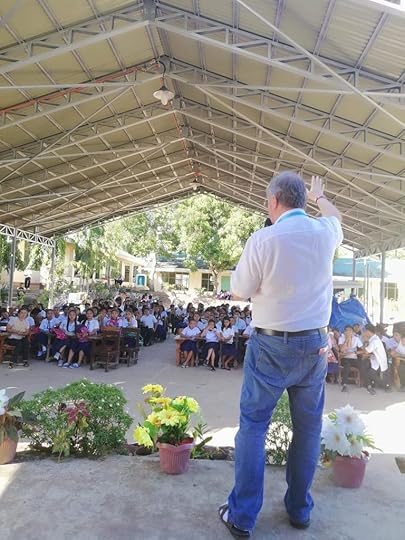
After a few minutes of speaking from the stage I become aware of the distance between the audience and myself. I am not yet connecting as I wish to. To reach these folks’ inner poets, to touch their souls, I must step beyond the comfort zone of the stage, and across the invisible barrier it creates. But the only risk here is that the microphone will not work so far from the sound system. Nevertheless, I descend the steps and the amplification indeed holds. As I step into the audience, an audible intake of breath sweeps past me. People don’t do this here. And there is applause when, with a deafening roar, my own poet leaps forth. Now I am connecting. And the connection is maintained for the rest of the afternoon. Eye contact and proximity work wonders in releasing shackled poets.
After forty minutes or so, it is time for me to fall silent and make way for audience response, in the form of questions and comment. They are almost always slow in coming. Few want to be the first to step into the Land of Risk when it comes to asking questions. But when they do come, they bubble like a brook. Almost all are on theme. “How to we connect with the poet inside us?” “How do we make this music in the spheres?” And more overtly, “How can we be like you?” My task now is to point these folk in the direction of what is already inside them; what has always been inside them. And I tell them, as I tell all audiences, that to find the inner poet, the inner artist, the inner engineer, the inner parent, to become the best we can ever be on this journey we call life, we must make space for the silence. For only when we take the trouble to disconnect from external voices, do we find the one voice that speaks only into the silence – the eternal spirit that dwells in all of us. Find that, and you begin to make your life into pure poetry.
The event finishes with more photos that I can number and much signing of autographs – on paper, on smartphones, on flutes and on I can’t remember what else. But only two books are sold, for resources here are scarce, and money is spent most carefully. But it matters not to me. I am not here to sell and to make money. Any money made will be left in this country anyway. I am here to illuminate journeys. I can do that by speech and I can extend it by pointing those that want to know more to my website.
In the evening I am afforded the enormous honour of being invited to dinner by the Principal of Sinuknipan National High School, Madame Lourdes S. Sevilla.
The second day’s event is at Sinuknipan National High itself, but involves other schools in the district as well. Launching at 8.00am, the heat is not as intense as yesterday, but still enough to have the audience fanning themselves within a few minutes of becoming seated. This audience is a similar size but older – all appear around 18 years or so. The event is billed as an extended workshop on creative writing. It will indeed cover this, but must expand beyond the limits of that definition, to encompass all expressions of creativity. As far as I am concerned there is no material difference in how that creativity expresses itself. Be it music, or nurturing, poetry or policing, it is this creative spark that is the essence of our humanity. It is how we reflect the nature of the creator.
I repeat yesterday’s decision, descending from the stage to much the same effect, for it is in proximity, in eye contact that the spirit-to-spirit connection is made. It rapidly becomes obvious as to who in the audience is ready to connect and who has yet to reach the necessary stage on their own journey. For those who have further yet to travel, I know there will be other opportunities. This time, I speak for an hour. The audience being older can take more. But because the event is billed as a workshop, there are some two hours of intense, demanding questions before I must take a break, and yield the floor to another speaker. Later I am recalled to finish with my second presentation – thirty minutes on ‘The Story that Changes Your Future. And of this, perhaps we shall speak more another day.
There is much final photo-taking and book signing but too soon it is time to leave for the bus back into the city. We arrive on time for the 1.30pm departure, only to discover that the bus left at 1.00 pm. So we take the 2.30 bus, which pulls away at 2.15, with maybe three occupants other than ourselves.
I smile. This is the Philippines.
An eight-hour journey lies ahead and the bus is of the stopping variety. Every few kilometres, sometimes less, it pulls over. Periodically it is boarded by food and drink vendors, so we will not go hungry. Amazingly, someone has packed a cheese sandwich for me. With this reminder of home, my thoughts turn to my nutritional journey, which for three years, now, has been vegetarian. I have preliminary thoughts of progressing to a vegan diet and have so far commenced with a significant reduction in dairy intake. But though the logic is obvious, the challenge is greater. And I wonder what I would do, should there be future visits here, for these folk include flesh in almost all they eat. To reject, also, dairy products and the all animal based output would leave me, I guess, with very little to eat. But my weight management journey also has far to go, so perhaps that would not be such a bad thing. I lose weight when in the Philippines anyway, and I am grateful to do so.
As the kilometres slide under the bus, we climb into the cool of the mountains and their rain forest covering. The trees are of a different variety from those at home, but the spirit of the forest reaches to me as keenly as it does in my own New Forest in Hampshire UK. The dryads are, at the same time, new and familiar. I feel the welcome through the glass of the bus and it seems we are kindred spirits. As I have said before, I number angels and dryads amongst my closest friends. As the hour grows late, the sun leans out over the pacific and is embraced back into a warm, welcoming sea.
Eight hours later, we do indeed arrive in the city and are dropped, mercifully, only a thirty minute taxi ride from my accommodation. At 10.30, I drop gratefully into bed, but not before I have set the alarm for 3.30am. At 5.30 I am due at the Eagles Broadcasting Studios for an appearance on national breakfast television.
The post Forester in Asia 2018: Post 7: Comfort Zones and the Land of Risk appeared first on Michael Forester.
March 4, 2018
Forester in Asia 2018: Post 6: Dragons and Artists
Days 12-13: 3rd – 4th March 2018: Dragons and Artists
I am at UMAK again today, for a very special event. The University has sponsored an open competition to write and stage a thirty-minute musical based on my epic fantasy, Dragonsong. There are seven finalists, all of which will be performed today.
The day is to start with a parade. Filipinos seem to enjoy parades. I watched more than one last time I was here and anticipate that I shall be treated to a walk-past of the characters from the finalist entries. The parade duly forms up, and begins to move forward. But no, I’m wrong. Instead of sitting while they walk past me, I am taken by the hand by a young lady master (or should it be mistress?) of ceremonies and led to the front of the line. Someone places a sun parasol in my left hand while someone else hands me a bottle of water in my right. I than have the surreal experience of leading the parade of maybe one hundred and fifty or so stage dressed characters around the running track of the university sports arena, while folk in the stands cheer and a professional video is filmed of the whole procedure.
I guess I should be used to surreal experiences while I’m in the Philippines, by now. There’s a sense in which I am as much in character whilst ‘doing’ Michael Forester, as the actors in the parade behind me are. I take continuing care to avoid letting any of this go to my head. I’m still the same ordinary me as has walked upon the earth almost sixty-two years, full of frailty, a past master at making mistakes. Adulation’s a harsh mistress. I will do all in my power to ensure she does not enslave me.
For the afternoon’s main event I arrive at 1.00pm as requested. We are in the 1,000-seater Grand Theatre, so a large crowd is obviously anticipated. But we are on FLT (Filipino Local Time!) and no one is ready to proceed. (Everyone but me, of course, knew that would happen!) We use the time for photo opportunities and book signings. At 1.30pm or so, the theatre darkens and the first performance begins. Seven, thirty-minute dramatic and musical interpretations of Dragonsong follow, each one closely behind the last.
I am seated by the judges, all prominent in their various fields, from academia to popular music. I watch them exchange comments quietly and write furiously. I don’t envy them their job; this is not going to be an easy judgement. Huge effort has been put into every presentation – the costumes, the lighting, the musical interpretation Though the last of these is, of course, inaccessible to me, its absence has no bearing on my enjoyment. I know the plot reasonably well! I am enraptured. Each presentation seems to out-do the last, each display becoming more stunning until the final one, in which some of the artistic interpretations and the dramatic behavioural devices are truly outstanding. And then comes the seventh interpretation of Harmony the Dragon. She is dressed in red, with her face hidden behind a mask.
This alone would be enough. But when the mask is removed, the audience pulls back in their seats as one, gasping in astonishment. There is no question. This IS Harmony. This is precisely how I conceived of her. The actor’s behavioural interpretation, supported by stunning make-up, is perfect.
Later, the young lady concerned does indeed win the award for best actor. I ask if she is set for a dramatic career, for she would surely go far. But no. She is training to be an accountant!
The overall winner is announced. I can only agree with the judges, for the performance overall was superb. The piece went behind the plot of the book and seamlessly entered the realms of author purpose and intent. Bravo, the winning troupe. What a delivery. Prize presentations and photos follow to much clapping. Some six hours later we leave the theatre. I’m zapped.
Fortunately, the next day is a rest day. Dr Pascual offer to accompany me out to see the museum of National Artist, Carlos Francisco, who died in 1969. Given my encounter with the spirit of Jose Rizal when I was in the Philippines last year, I await most keenly to discover what experience this visit will hold. But before we get there, we visit Angono-Binangonan, a site of Neolithic cave carvings, some 4,000 years old.
I learn with interest that it was Carlos Francisco himself, who drew the site to the attention of the National Museum of the Philippines. Then it’s back into the town of Angono. We are taken to the house of the National Artist by motorbike and side-car – a first for me! When in Rome…
At the house, the artwork does indeed strike a chord of artistic excitement but there are no revelations of the scales-falling-from-eyes variety, that I experienced last year with Rizal. Nevertheless, I can understand why Francisco is National Artist.
His works capture in profound emotion the history of the Filipino people. We are conducted round the house by a nice young man whom I take to be the curator. But there’s something more about this man; something I can’t quite pinpoint. We are on the point of leaving, when I see some large canvasses that are clearly work in progress. A much more modern style of art than Francisco’s but this work also has depth and an air of significance. I ask who the artist is. The young man acknowledges the canvasses are his – he is the grandson of the National Artist, also named Carlos Francisco.
I indicate my own identity and a conversation ensues about the common ground between about art and poetry. I leave a gift towards the upkeep of the house, a small enough sum for the enjoyment I have been offered today. Carlos is taken aback. In return he gives me a poetry collection by local poets. It is in Filipino but Dr Pascual offers to translate some for me.
We return to the city by minibus for the princely sum of 45 pesos per person (about £0.70). Tomorrow we prepare to leave for the provinces. We are bound for Camarines Sur.
The post Forester in Asia 2018: Post 6: Dragons and Artists appeared first on Michael Forester.


